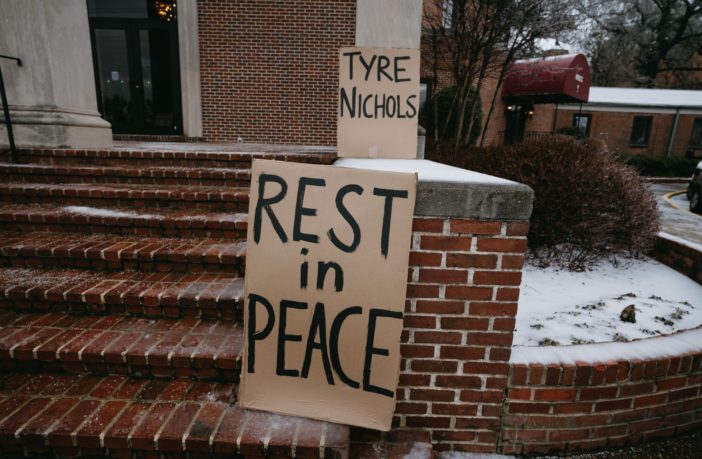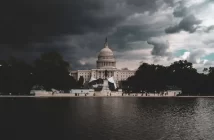Inspired, by the timeless words of James Baldwin, I sat at my computer to craft a piece on the brutal beating, tasing, pepper spraying and subsequent death of Memphis skateboarder and amateur photographer, Tyre Nichols. In the wake of the latest tragedy at the hands of “law enforcement” Baldwin’s poignant words on policing and the particular tyranny of Black officers have been gracing my timeline as folks look for language to describe their shock, horror, dismay, frustration, disappointment, fury and exhaustion at the constant onslaught of police brutality. I started a number of times but with each attempt my thoughts trailed off into redundancy. Then it dawned on me, there is nothing new to write about police violence against Black folks. It has been going on, and has not slowed since James Baldwin wrote about it in the 60s. It has been incessant since Ida B. Wells was offering up solutions for it in the first decade of the 1900s. It is simply preposterous to think that there could be anything new to put to the page about the oldest, and best funded, gang in America, the police. The only thing new is its latest victim.
The next in a line of hashtags, some have tried to distinguish the brutality of Tyre’s murder, as an outlier. The Memphis police chief, Cerelyn CJ Davis, described it was the “worst she had seen in her career.” A 28+ year veteran of the force, she was also the creator of the now defunct Scorpion Unit, that descended upon Tyre. The high-profile unit was modeled off of Atlanta’s Red Dog Unit, whose 30 year terrorizing of the city (overseen by Davis for 18 months) hip hop legends, Goodie Mob immortalized on their Soul Food album. The media rushed to post the images of five of the officers involved, their noticeably not white faces, staring back at a nation of Black folks, who wondered aloud, “How could they do this to another brotha?” Right wing politicians and other otherwise blue line advocates who tirelessly wave, “they should have complied” flags, were quick to decry the Black officers’ actions as unconscionable. The sad, tiresome reality, however, is that, regardless of their invitations to the BBQ, as police officers, NO their actions were not uncommon.
Once the Emancipation Proclamation made slavery no longer legal, states got busy creating laws to, once again, bind free Black folks to a system of servitude aka chain gangs, convict leasing, etc. In historian Steven Hahn’s Pulitzer Prize winning, A Nation under our Feet: Black Political Struggles in the Rural South from Slavery to the Great Migration, he states:
“Vagrancy ordinances, apprenticeship laws, anti-enticement statutes, stiff licensing fees, heavy taxes, the eradication of common-use rights on unenclosed land, and the multiplication of designated ‘crimes’ against property constructed a distinct status of Black subservience and a legal apparatus that denied freed people access to economic independence.”
Historian Keri Leigh Merritt in her article, “One Continuous Graveyard”: Emancipation and the Birth of the Professional Police Force adds:
The southern legislatures may not have been able to single out African Americans in letter, but law enforcement officials across the former Confederacy clearly understood the statutes’ intended targets. In Georgia, for example, postbellum vagrancy laws criminalized people “who have not some visible and known means of a fair, honest and reputable livelihood,” meaning freedmen who left the employ of their plantations…Finally, the statute deemed it lawful for “any person to arrest said vagrants,” effectively giving all whites legal authority over Blacks.
As the historians above so clearly state, the post slavery culture of policing was built on the ethically flawed expectation of its officers to carry out senseless and careless crimes against the Black citizens on their watch. That lives on in modern day police units nationwide. There are good people on the force. However, no matter what you show up as there are no “good cops” because policing in America, is not forged from, informed or fostered in anything good!
The video of Tyre so inhumanely losing his life, whose release by the Memphis police was not the first time any who have been paying even cursory attention have seen police officers deal out death as an act of department was promoted via media like a new Netflix film, assertion of their power. Beginning with a white officer (whose name and identity were originally not released and who has not been charged for his role in connection to the crime) violently pulling Tyre from his vehicle, after unlawfully pulling him over, tazing him, and upon Tyre’s escape, later quipping, “I hope [the Scorpion Unit]stomp the sh** out of him”, followed by the subsequent snuff film of the five officers beat down; it also featured two EMTs watching in silence, an audience at the “let out” of a lynching, administering no medical care to a young man who only moments before cried out to his mother hoping she’d hear him from inside her home 100 yards away. As dehumanizing as all of that sounds, it was not a unique scenario that soon had Tyre’s mother, RowVaughn Wells, at her son’s funeral, pleading for the George Floyd Justice in Policing Act to pass.
Thus, what I have written here is not revelatory. That said, in light of the efforts of many to erase the inconvenient truth of this country’s heinous history, I must reiterate that the fact remains, policing as we know it was born out of the Civil War into a new war on freedom for any who are not representative of the founding fathers of this nation. However, their names are not etched in marble as remembrance. No. These lives are the casualties of a war they did not enlist to fight in. We are their memorials. With every new life lost to police violence, their names become etched in our minds as painful reminders that there is nothing new to say because this country continues to uphold an archaic, old and tax payer funded culture of hate.
Amanda Seales is a comedian and creative, host of syndicated radio show, “The Amanda Seales Show,” podcast “Small Doses” and variety game show “Smart Funny & Black”



